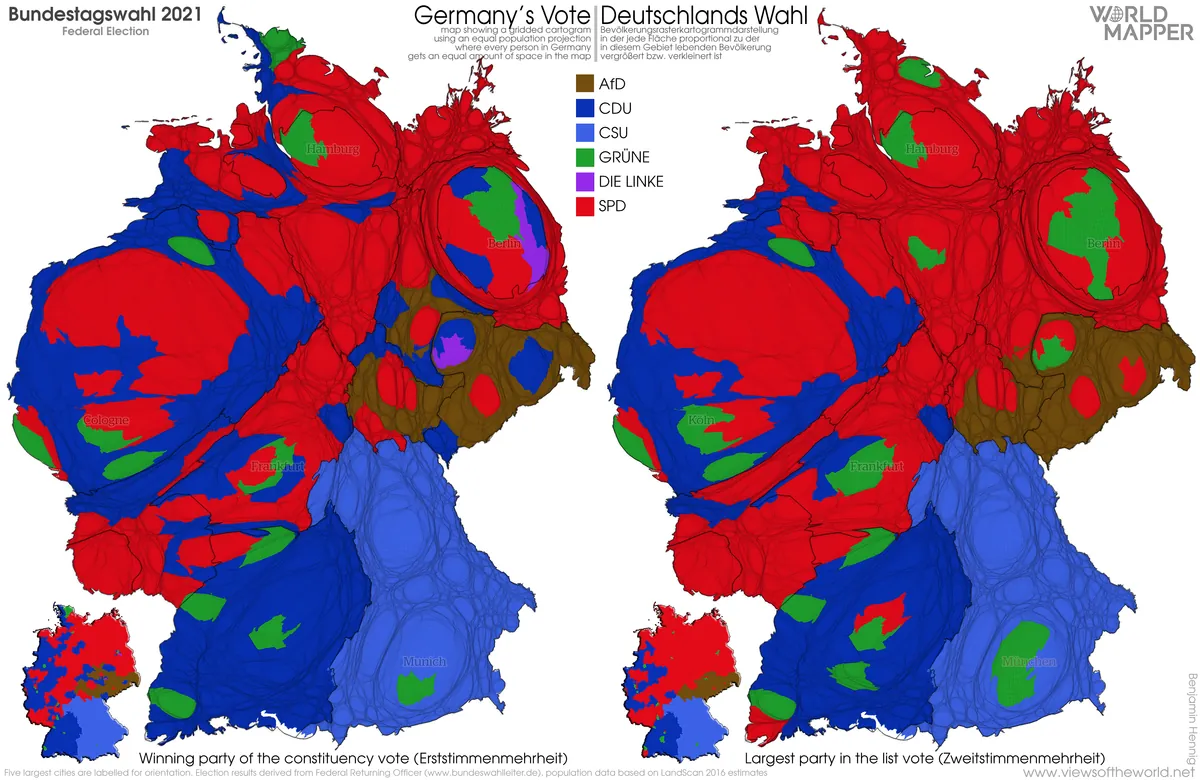Far-right AfD's Regional Election Gains Shake German Politics
AfD secures historic wins in Thuringia and Saxony elections, prompting concern from Chancellor Scholz. Coalition parties face setbacks as Germany grapples with far-right surge and potential policy shifts.

In a significant shift in German politics, the Alternative for Germany (AfD) party has achieved unprecedented success in recent regional elections. The far-right party secured a historic victory in Thuringia and came a close second in Saxony, marking the first time a far-right party has won a state legislature election in Germany since the end of World War II.
Olaf Scholz, Germany's Chancellor, expressed concern over the election outcomes, labeling them as "worrying" and "bitter." He emphasized the potential negative impact on Germany's economy, social cohesion, and international reputation. Scholz urged mainstream parties to form governments without the involvement of what he termed "right-wing extremists."
Despite the AfD's gains, it is unlikely to form a government in either state due to other parties' refusal to collaborate. However, the party's increased representation could grant it unprecedented influence, potentially allowing it to block decisions requiring a two-thirds majority, such as the appointment of judges or top security officials.

The election results have dealt a blow to Scholz's coalition government, with all three ruling parties losing votes. The Social Democratic Party (SPD), led by Scholz, managed to maintain its presence in both state parliaments, while junior coalition partners faced setbacks. The Greens and Free Democrats (FDP) failed to clear the 5% threshold required for representation in Thuringia's state assembly.
"Sunday's election results are bitter - for us too. The results for the AfD in Saxony and Thuringia are worrying. Our country cannot and must not get used to this. The AfD is damaging Germany."
These developments come at a crucial time, with Germany's national election scheduled for September 2025. The regional election outcomes may pressure the government to adopt a tougher stance on immigration and intensify debates surrounding support for Ukraine, issues that dominated the campaign.
The rise of the AfD, founded in 2013 as a Eurosceptic party, reflects growing discontent among some voters. Germany's complex political landscape, shaped by its federal system and proportional representation, has allowed for the emergence of new political forces. The Sahra Wagenknecht Alliance (BSW), a populist leftist newcomer, performed better than all three coalition partners in its first state elections.
As Germany grapples with these political shifts, the country's role as a key supporter of Ukraine since Russia's full-scale invasion in 2022 and its approach to immigration policies may face scrutiny. The election results underscore the challenges facing established parties and the changing dynamics of German politics in the lead-up to next year's national election.


































